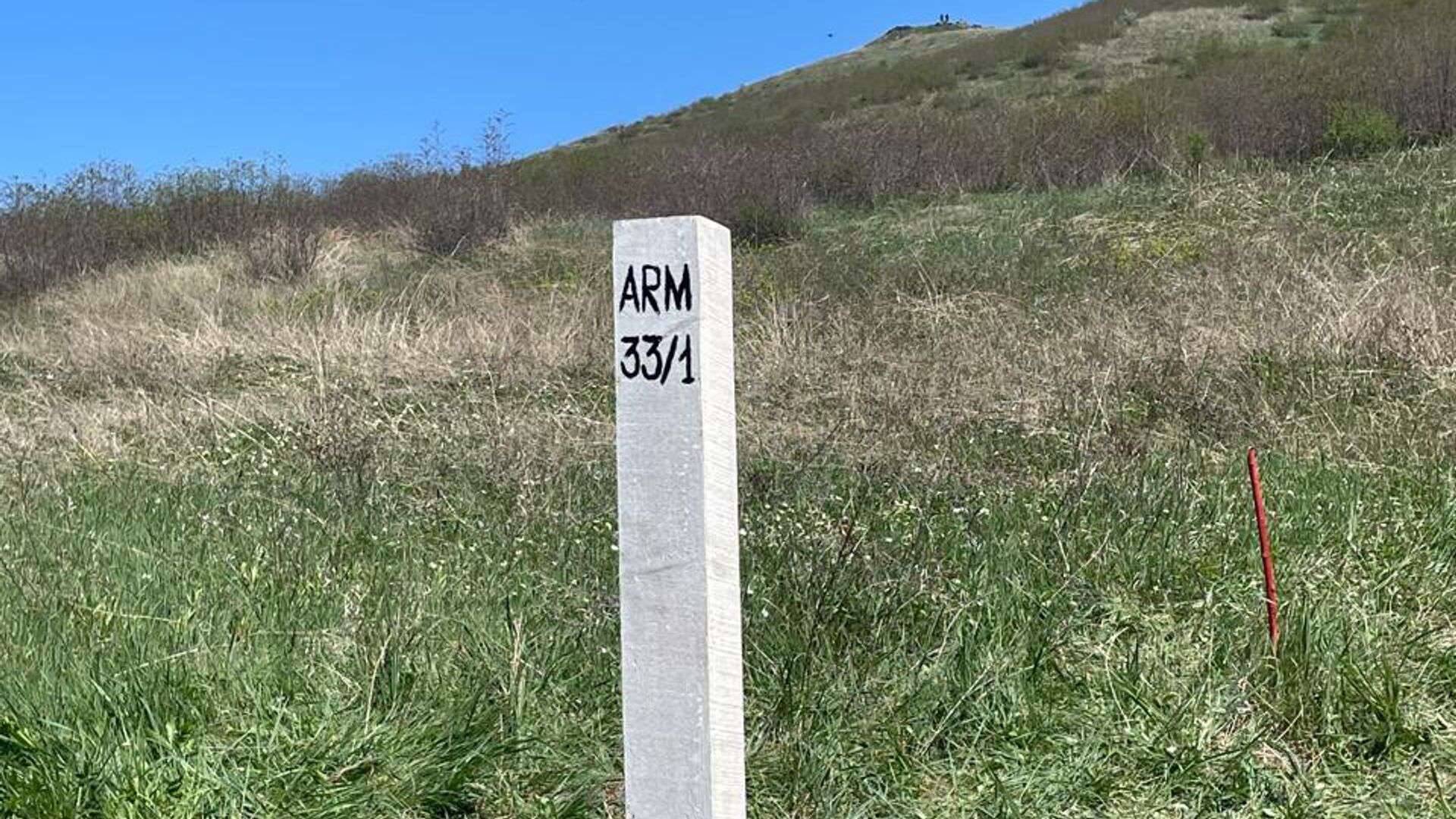The Ministry of Justice presented counter-arguments regarding the demarcation process.
"Azatutyun radio station" published on May 17, 2024, "De jure territories of RA are transferred to Azerbaijan. "Constitutionalist" video (available at the following link: https://www.youtube.com/watch?v=hgVApyizqJE), in which constitutionalist Vardan Poghosyan voiced several misleading theses, and the ideas expressed have a specific spread on other platforms as well, so due to this, we consider it necessary to refer to the arguments presented in the video below.
Argument 1. As an argument for the belonging of the village of Kheyrumli in Azerbaijan to the Republic of Armenia, the regulations of the RA Law "On Administrative Territorial Division" are presented, which reflect the description of the administrative border of the Kirants community, according to which the Kirants rural community borders the Berkaber rural community.
Answer: At this point, it is necessary to state that the provisions of the law shown and referred to in the video were invalidated on 09.06.2017; that is, at the time of the implementation of border demarcation works, the specified description of the administrative border of the Kirants community was no longer available in the given law, while there is no information about it. There is no speech in the video, thus creating a false impression among the public that existing legal regulations are shown and referenced. However, even the claim that the Kirants community borders Berkaber from the east along the "B"-"C" section does not mean that it includes the territory of the Azerbaijani village of Khairumli because the inclusion of Kheyrumli village is not a mandatory condition for Kirants settlement to be considered bordering Berkaber.
In addition, it is an indisputable fact that the village of Kheyrumli, belonging to the Azerbaijan SSR, existed. According to the legally justified maps that existed at the time of the collapse of the Soviet Union, including the 1976 topographical map of the USSR State Government, that village had clear territory. The map reflects its belonging of Soviet Azerbaijan. Therefore, the territory of Kheyrumli cannot be considered the territory of the Kiran settlement.
Argument 2: Referring to the protocol approved by the vice presidents of the Councils of Ministers of the ASSR and ASSR on January 12, 1988, it is noted that during the years of the Soviet Union, the governments of the two countries had the authority to determine the border.
Answer: First of all, it is necessary to emphasize that reference is not made and cannot be made to any legal norm that would endow the governments of the Soviet republics with such authority. The fact that the authority to determine the border between the union republics is not reserved to the governments of the ASSR and the ASSR is also evidenced by the very protocol under discussion. Not having the appropriate authority, the vice-presidents of the Councils of Ministers did not finish the work but agreed to present the map to be drawn up as a result of distinction to the presidencies of the State Council of the two countries and the regional units of the State Geological Survey for duty, which was not done.
Argument 3: The 1976 map of the Soviet Union does not have any legal basis because there was no agreement between the USSR and the USSR in those years.
Answer: V. Poghosyan does not refer to the fact that on the 1976 map, the signatures of the heads of the territorial inspectorates of the State Geological Survey of the USSR (including the Transcaucasus) certify that the borderline on them corresponds to the borderline of the decisions of the presidencies of the ASSR and ASSR in 1969. In other words, the borderline of the 1969 and 1976 maps is identical, and the 1969 borderline is also the basis of the constantly referenced 1988 inscription and the demarcation works that preceded it. As for the legal validity of the protocols of 1988, it should be noted that the further steps of the process provided for by the protocol signed on January 12, 1988, were not carried out: an appropriate map was not drawn up, the documents were not transferred to the Presidencies of the Central Committee for approval and to the regional units of the State Geological Control for duty. As a result, the process envisaged by the protocol remained incomplete and needed to receive legal force.
Argument 4: The Cadastre Committee provided the residents of the Kirants settlement with certificates of proper registration. Therefore, these areas are the territories of the Republic of Armenia.
Answer: It should be stated that the state registrations of relevant rights were made based on inaccurate data. Those registrations cannot be a legal basis for asserting that the territories in question are considered part of the sovereign territory of the Republic of Armenia based on state registrations based on inaccuracies.
Argument 5: A state border could only be demarcated after an agreement on the entire border was reached based on an international treaty.
Answer: We consider it necessary to state that the ongoing process is a reproduction of the state border, not a method of drawing a new border. Currently, the 1969 ASSR and ASSR Central Committee chairmanships Guided by the documents approved by the decisions of the countries and the maps based on them, the mutually agreed-upon border between the nations during the USSR years is reproduced based on the principles mutually agreed upon by the Alma Ata Declaration. It should also be noted that according to the results of the meeting of the commissions of the two countries on April 19, 2024, it is indicated that the distinction in the area of 4 villages is preliminary until the full completion of the demarcation process. The document confirming the complete completion of the demarcation process should already be the international agreement on the state border between Armenia and Azerbaijan, which will be subject to ratification by the RA National Assembly.
Therefore, the process is entirely legal. Within the framework of the ongoing process, the two commissions will soon agree on the draft regulation of the joint activity of the commissions and submit it to the parliaments for approval.




















